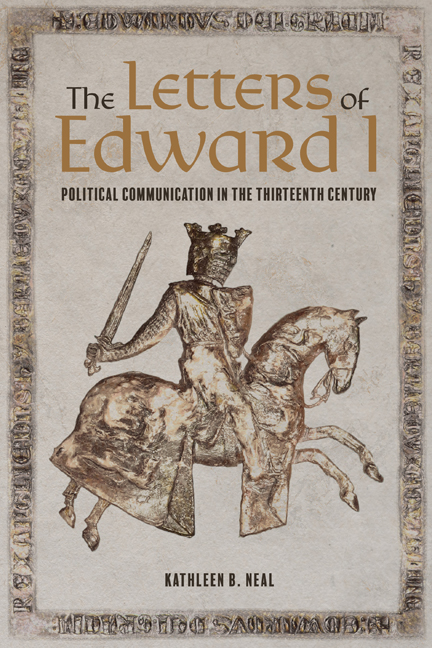Book contents
- Frontmatter
- Dedication
- Contents
- List of Illustrations
- Preface
- Abbreviations
- Introduction: Letters and the Language of Power
- 1 Royal Letters: The Authority of a Form
- 2 Rhetorical Refinement: Epistolary Editing and its Implications
- 3 Announcing the Message: Communities of Reception and Royal Ideology
- 4 ‘Dear Cousin’: Affect and Epistolarity beyond Borders
- 5 Keeping Friends Close: Strategies of Epistolary Alignment
- 6 Rhetoric Under Strain: Re-writing Royal Epistolarity
- Conclusion. Royal Epistolarity: The Voice of the King
- Appendix
- Bibliography
- Acknowledgements
- Index
Introduction: Letters and the Language of Power
Published online by Cambridge University Press: 09 February 2021
- Frontmatter
- Dedication
- Contents
- List of Illustrations
- Preface
- Abbreviations
- Introduction: Letters and the Language of Power
- 1 Royal Letters: The Authority of a Form
- 2 Rhetorical Refinement: Epistolary Editing and its Implications
- 3 Announcing the Message: Communities of Reception and Royal Ideology
- 4 ‘Dear Cousin’: Affect and Epistolarity beyond Borders
- 5 Keeping Friends Close: Strategies of Epistolary Alignment
- 6 Rhetoric Under Strain: Re-writing Royal Epistolarity
- Conclusion. Royal Epistolarity: The Voice of the King
- Appendix
- Bibliography
- Acknowledgements
- Index
Summary
This book is about language and how it is manipulated to sustain models of power and authority. It is also about the limits of the capacity of language to manipulate: the moments when rhetoric fails to achieve its goals. It explores these questions through the example of royal letters in the reign of Edward I of England. Letters such as these are an important manifestation of rhetoric as it developed in the later middle ages. Medieval rhetoric took many forms, each of which responded to the needs and pressures of its immediate context, while drawing on classical antecedents. It was not merely a matter of ‘style’, an aesthetic of purely decorative purpose. Although contemporaries debated the precise nature of the relationship, medieval rhetoric and politics were intimately entwined. Wherever the form, mode or extent of political participation was a living question, rhetoric had a crucial part to play in political culture. In the kingdom of Aragon, for example, in the context of external threats and internal dissension, the mode of assembly politics made royal speeches a rhetorical form of particular power and significance, and several of its kings became orators of note. In England, the emergence of parliament as a core political institution produced a related platform for a culture of political speech to flourish, especially from the fourteenth century when opposition to Edward II, the long military campaigns of the Hundred Years War, and the demographic fallout of the Black Death made achieving political consensus a difficult and pressing task. Even before this, however, letters constituted an important medium in which royal power was proclaimed and its relationship to a wider political community was negotiated.
Medieval letters were highly structured, formal and formulaic documents, the parts and production of which had been theorized and taxonomized since at least the eleventh century. Mastery of the skills of producing them had to be taught, and offered a means of entry into service of the governing elites for men of lower status. Within the fundamentals of epistolary practice, and under the influence of increasingly professionalized legal systems, the English royal administration was one of many bureaucracies which generated a dizzying array of specialized forms, each with its own standards of structure, expression and application.
- Type
- Chapter
- Information
- The Letters of Edward IPolitical Communication in the Thirteenth Century, pp. 1 - 23Publisher: Boydell & BrewerPrint publication year: 2021



